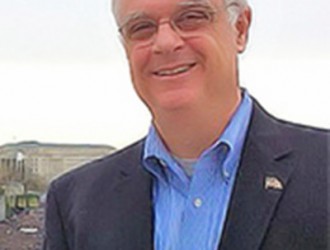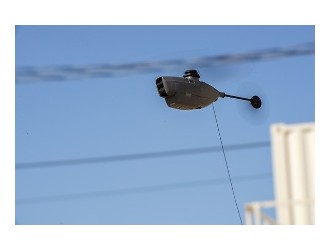Anyone who hates noise would be crazy to live near an airport, right? You’d think so, but some people chose homes close to airports and choose to complain about the noise. It’s not a lot of people, but a handful of obsessives. The vast majority of airport-noise complaints come from only a few affected households—and some that aren’t affected at all.
A new paper by Eli Dourado and Raymond Russell of George Mason University’s Mercatus Center tracks airport-noise complaints to their sources. wher the data are publicly available, they show that a tiny number of households are responsible for hundreds, even thousands of complaints to airports every year.
The numbers can be shocking. The following, adapted from a chart in the Mercatus paper, describes noise complaints received in 2015:
Ronald Reagan Washington National Airport (DCA): Two individuals at one residence in NW DC accounted for 6,852 complaints (78 percent).
These people need to move! Assuming the pair splits up the workload 50–50, that’s 9 complaints each per day. Maybe one gets a cold and the other picks up the slack: 18 calls. Eighteen calls in one day to tell airport personnel that one D.C. household thinks their operation is noisy. Trust: They know!
A vocal neighborhood minority can create the appearance of a much broader airport-noise crisis, which can and likely has lead the Federal Aviation Administration to impose stricter aircraft standards. As the paper notes, this is a problem that affects many, many more people than the couple living in D.C.’s tony Foxhall neighborhood.
“While noise abatement is desirable, it can have significant costs—particularly on the fuel efficiency of aircraft—resulting not only in higher carbon emissions but also in higher ticket prices,” the paper reads.
The paper continues with frustrating examples of the distortion of airport-noise NIMBYism across the nation.
Washington Dulles International Airport (IAD): One individual in Poolesville, MD, 13 miles away from the airport, accounted for 1,024 complaints (84 percent).
That person lives nowher near the airport. Poolesville and Dulles are separated by the Potomac River. Imagine calling in with noise complaints three times per day about something an entire body of water away.
Denver International Airport (DEN): One individual in Strasburg, CO, 30 miles from the airport, accounted for 3,555 complaints (73 percent)
That individual lives ridiculously far from the airport. Denver International Airport is much closer to downtown Denver than suburban Strasburg; and as anyone who’s flown there can tell you, Denver International Airport is nowher near downtown Denver.
Las Vegas McCarran International Airport (LAS): One individual accounted for 450 calls in September 2015 (98 percent of monthly total).
Block this person’s number!

What about August makes this person so chill? Teacher, academic maybe, who gets right back to dialing upon the return of the school year in September? Block, block, block.
Los Angeles International Airport (LAX): One individual in Monterey Park, CA, accounted for 489 complaints during June 2015 (50 percent of monthly total).
Fifty percent might not sound so bad in the context of this list, but that’s just for one month’s worth of calls. One very angry Monterey Park resident dialed in 16 complaints per day in June 2015. That must have been a no-good, very-bad month for the person answering the phones at LAX.
Seattle-Tacoma International Airport (SEA): Three individuals accounted for 648 complaints (64 percent).
This doesn’t sound so bad. These are people who call just twice a day to complain about the noise. They think about calling on Thanksgiving, but maybe let it slide. Take a day off every now and then. They consider dialing in on date nights or during family get-togethers, but don’t do it every time.
Even in places wher one caller isn’t dialing in the overwhelming majority of complaints, the upper echelons tend to be dominated by a small number of vocal opponents. only 42 households complained about noise in Denver, but 4 callers lobbied 4,653 of the complaints—96 percent of the total. (With most all of those coming from way out in Strasburg.) Five individuals made 61 percent of the 688 noise complaints that Portland International Airport received in 2015. (Possibly more complaints than the airport received for ripping up its carpet.)
Federal agencies can be terribly susceptible to the distorting effects of a few dedicated opponents of an ostensible public nuisance. For example, complaints to the Federal Communications Commission about indecency on television jumped from 350 in 2000 to some 240,000 in 2003. But 99 percent of these complaints were filed by the Parents Television Council, an advocacy group founded by conservative activist Brent Bozell. Account for all the automated copy-and-paste complaints, though, and it turns out that no one really cares about The Simpsons.
The cost to consumers for federal overreaction to distorted consumer complaints can be high. A 1999 paper on airport noise found that the increase in airport-adjacent property values following the adoption of stricter aircraft standards was $5 billion less than the cost to airlines in implementing those standards. Those costs are being passed on to thousands and thousands of air passengers, to the benefit of a very small number of residents.
People shouldn’t have to live in noisy flight corridors or near airport congestion if they do not want to. The answer to this household dilemma, though, is not to move the airport.





